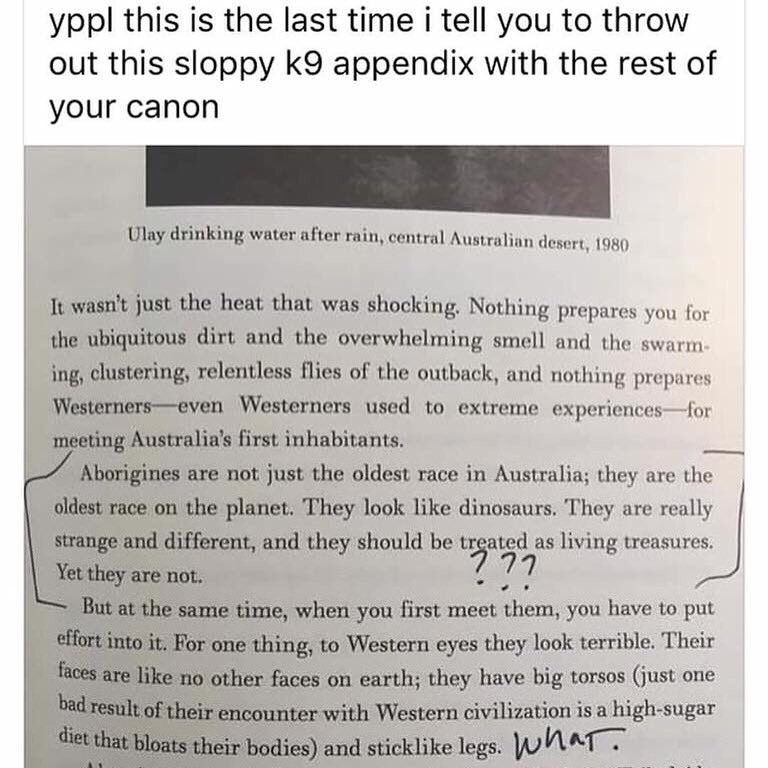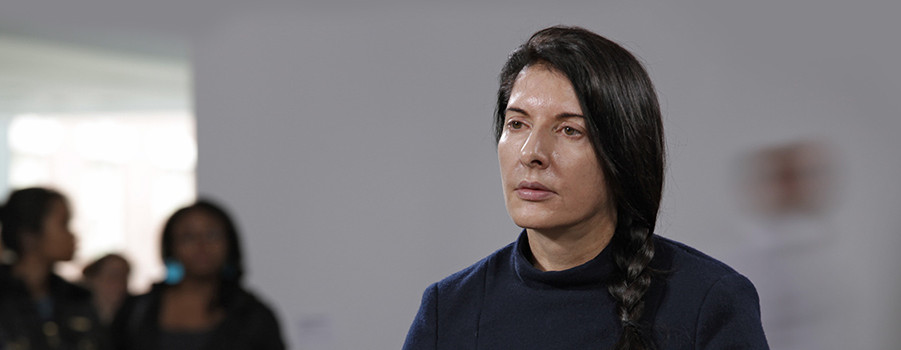Earlier this week social media went into meltdown over a section in the upcoming memoir of the Yugoslavian born, New York based performance artist Marina Abramović.
In the memoir, Abramović recounts the first time she encountered Indigenous Australians, way back in 1979. Her description of Indigenous Australians is confronting and has deservedly caused a great deal of uproar.
The passage reads,
“…nothing prepares westerners- even Westerners used to extreme experiences- for meeting Australia’s first inhabitants.
Aborigines are not just the oldest race in Australia; they are the oldest race on the planet. They look like dinosaurs. They are really strange and different, and they should be treated as living treasures. Yet they are not.
But at the same time, when you first meet them, you have to put effort into it. For one thing, to Western eyes they look terrible. Their faces are like no other faces on earth; they have big torsos (just one bad result of their encounter with Western civilisation is a high sugar diet that bloats their bodies) and sticklike legs.”

It’s 2016 – it should be pretty clear to everyone that speaking like this is wrong. Assumptions like these are derogatory and flat-out racist. Marina Abramović has since responded to the backlash, defending herself by saying these were simply her initial thoughts that she wrote in a diary in 1979. Since then she has spent time with Indigenous Australians, describing her experiences with the Pijantjatjara and Pintupi tribes as a “transformative experience…one that has deeply and indelibly informed my entire life and art.”
Abramović’s publishers have now said this passage will no longer be in the final publication.
Still, it’s astonishing that the publisher ever considered it OK to print this passage, or that Abramović had these thoughts. It indicates a deeper, ingrained form of racism. A form of racism often invisible to those it doesn’t affect.
So let’s unpack this passage and highlight why comments like Abramović’s are utterly unacceptable.
1. Firstly, to describe meeting Indigenous Australians as an ‘extreme experience’ is to suggest that it is a dangerous and risky task. That for a Westerner to meet an Indigenous Australian is courageous and out of the ordinary. It’s as if Marina Abramović is patting herself on the back and saying ‘good on you white person for shaking hands with a black person. You’re brave and an inspiration.’
I’m pretty sure it would have been more extreme the first time Europeans arrived in Australia.
2. To say Indigenous Australians ‘look like dinosaurs’ and should be ‘treated like living treasures’ is to suggest that they are archaic and stuck in the past. We know Indigenous Australians have one of the oldest continuous cultures in the world. However the people you are meeting are present. They are not past. Their culture has developed over time and they are living in the modern world just as much as we are.
3. When you say someone looks bad to the Western eye, you’re basically saying someone doesn’t look like a Westerner. And that anyone who looks different to a Western standard of beauty looks bad.
The same things were said about Indigenous people when Europeans first arrived here in the 1700s. I would have hoped Western ideals of beauty had developed a little since then.
4. And in defence of myself, a Westerner, please don’t generalise me into your narrow ideas of beauty and tell me what looks pleasant to my eye.
5. Lastly I’m pretty sure if a bloated belly from a high sugar diet was the worst thing Indigenous Australians were left with from colonisation, we wouldn’t have to worry about not treating them like ‘living treasures’.
Why is it so difficult for us to just treat each other like humans?



